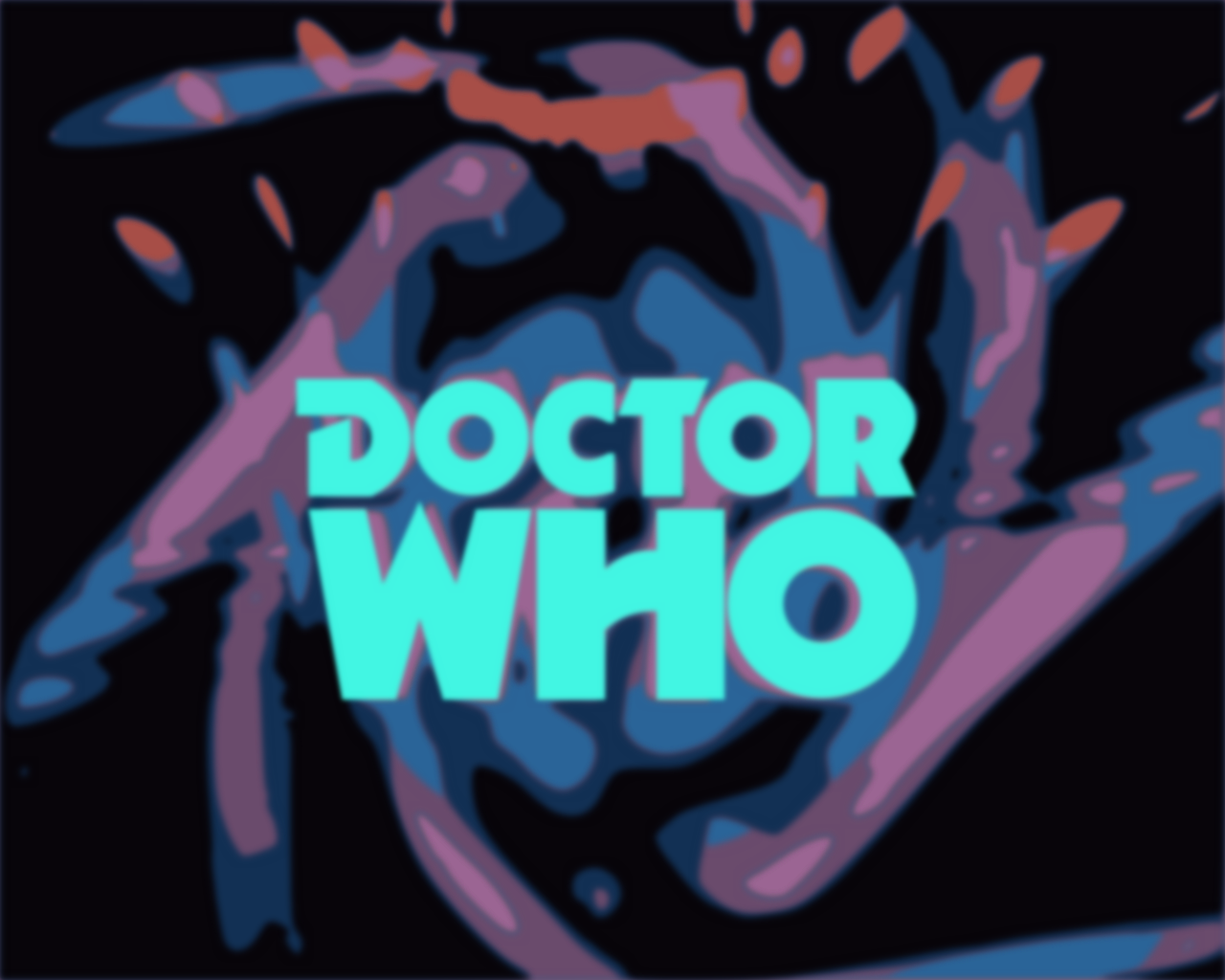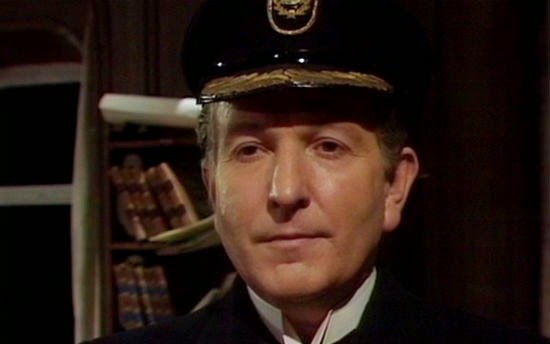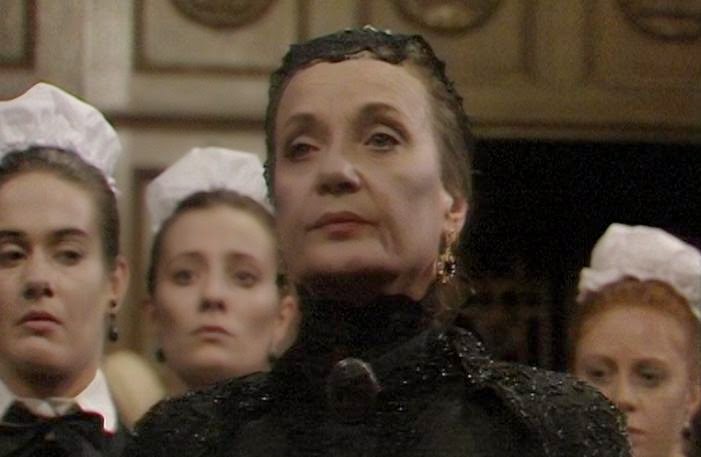Doctor Who - The Most Amazing Guest Stars
Steve Hendry was set the task of a small article regarding guest stars on Doctor Who. So without further ado here is Part Two of a huge article, the amazing ones...
This is a long article. Our esteemed Lord President has had to split it two (part one is here). This is what happens when I only get my coffee halfway through the article - here’s some of the best, the worst and the most unexpectedly awesome guest stars of Doctor Who.
Hey there gang, let’s have a look back at some of the amazing guest stars that have been in Doctor Who over the years! Haven’t we had some absolute bobby dazzlers eh? That JN-T, he knew how to pick ‘em, just have a look at Enlightenment. In any other story, Lynda Baron would have been the star pick, but her near-namesake steals the show entirely.
Keith Barron, he of 80’s sitcom farce Duty Free (in which he plays a philandering husband to Gwen Taylor, both of whom are on a seemingly perennial holiday in Spain. Hiding in wardrobes, racially dubious stereotypes of waiters etc.), delivers a chilling performance that is as perfect as any in the show’s history. Really, he is that good. If you needed an excuse to buy/re-watch the Black Guardian Trilogy, he’s as good as any. The story holds up very well and doesn’t necessarily need the additional, feature-length version on the DVD, with its added visual effects (it is very good though). The sets are better than usual for around that time, and the model work on the ships is terrific. The studio-bound stories of the 1980s were often guilty of trying to work scripted grand-scale environments into miniscule floor space. Enlightenment may well have been very cleverly written with this restriction in mind, with the studio’s claustrophobic atmosphere being ideally suited to the story.
So then, if a lower quality story can bring out the worst in a guest star, it appears that better all-round serials will elicit from them the genuine star turn for which they were hired in the first place. Further evidence for this comes in the form of Nicholas Parsons’ Reverend Wainwright in The Curse of Fenric. I can still recall my less than enthusiastic reaction to Parsons being cast upon reading of it in Doctor Who Magazine, and each time I revisit this story I am no less impressed by his incredible performance throughout. His scenes with Season 26’s more intense Sylvester McCoy come at key turning points in the story and are played superbly by both actors. To think such a virtuoso performance could come from the host of Sale of the Century is still, to me, mind-blowing. Yet even this surprising victory for JN-T’s casting policy doesn’t provide us with the best overall guest star of the 1980s.
Keith Barron, he of 80’s sitcom farce Duty Free (in which he plays a philandering husband to Gwen Taylor, both of whom are on a seemingly perennial holiday in Spain. Hiding in wardrobes, racially dubious stereotypes of waiters etc.), delivers a chilling performance that is as perfect as any in the show’s history. Really, he is that good. If you needed an excuse to buy/re-watch the Black Guardian Trilogy, he’s as good as any. The story holds up very well and doesn’t necessarily need the additional, feature-length version on the DVD, with its added visual effects (it is very good though). The sets are better than usual for around that time, and the model work on the ships is terrific. The studio-bound stories of the 1980s were often guilty of trying to work scripted grand-scale environments into miniscule floor space. Enlightenment may well have been very cleverly written with this restriction in mind, with the studio’s claustrophobic atmosphere being ideally suited to the story.
So then, if a lower quality story can bring out the worst in a guest star, it appears that better all-round serials will elicit from them the genuine star turn for which they were hired in the first place. Further evidence for this comes in the form of Nicholas Parsons’ Reverend Wainwright in The Curse of Fenric. I can still recall my less than enthusiastic reaction to Parsons being cast upon reading of it in Doctor Who Magazine, and each time I revisit this story I am no less impressed by his incredible performance throughout. His scenes with Season 26’s more intense Sylvester McCoy come at key turning points in the story and are played superbly by both actors. To think such a virtuoso performance could come from the host of Sale of the Century is still, to me, mind-blowing. Yet even this surprising victory for JN-T’s casting policy doesn’t provide us with the best overall guest star of the 1980s.
Steve’s Classic Series Golden Guest award winner is to be found elsewhere in 1989, in the majestic form of Sylvia Syms. But where’s the surprise there, I telepathically hear you wonder? Syms could entrance an audience by reading a telephone directory out loud, surely she’s too obvious a choice, and Ghost Light is clearly brilliant anyway? Well, that’s the point really. Sometimes the trick is best done with no surprises or gimmicky casting. Andrew Cartmel and JN-T’s approach here was to take Marc Platt’s terrific script which, like Barbara Clegg’s Enlightenment before it, realistically played to the available production strengths, then add into the mix a high grade guest ensemble. This method, coupled with the belief and insistence that Doctor Who frankly deserves actors of Sylvia Syms’ calibre being in it, has never failed to harvest television gold.
Now, I may have appeared harsh earlier in my denouncement of some of the show’s guest casting post-2005. Let’s face it though, we’ve been absolutely spoilt in the last nine years and it is almost an impossible task to choose favourite guest stars from the impressive list provided by casting supremo Andy Pryor and the two superb show runners we’ve been privileged to have in charge of our show. I won’t let that stop me though, and for Nicholas Parsons’ equivalent I nominate Nigel Havers for his role in The Wedding of Sarah-Jane Smith. I’m not even going to cover Russ Abbot’s turn in The Sarah Jane Adventures, I’ve had two coffees now. Havers could have treated his role like it was one in a children’s show, yet he is utterly believable as SJA’s fiancé Peter, the most tragic of figures. Surely the most intelligent casting choice possible, Havers excels in so many roles as a spiv (see The Chancer , Coronation Street et al) that viewers familiar with his work are initially inclined to see Peter Dalton as That Sort of Chap. Oh no, Sarah-Jane’s about to marry a wrong ‘un, stop this wedding, now! Of course, Peter is far from the villain of this piece and is a pawn in the Trickster’s wicked game, and Peter’s ultimate demise is both noble and heart-breaking at the end of a story that is surely Gareth Roberts’ finest piece of television writing.
Kylie Minogue was Russell T Davies’ highest profile audience-grabber, and wasn’t the character I had expected in Voyage of the Damned. Her subtle turn as Astrid isn’t quite my overall favourite though, and my award for best post 2005 guest actor is tied between two giants of the acting profession.
Timothy Dalton’s Rassilon is the most hideously brilliant villain Russell T Davies ever wrote for in Doctor Who. It is a testament to the BBC’s faith in Davies and the show that they were willing to pay Dalton’s wages in 2009, he can’t have been at the better value end of the list of options to play Rassilon but he was undoubtedly the best. Utterly ruthless, murderous and desperate, he is ready to end time itself as a final resolution to the war against the Daleks. Even The Master hadn’t thought of that, and only Davros’ psychopathy came close in Journey’s End.
With these events apparently taking place at the same point in Gallifrey’s timeline as Day of the Doctor, the parallel with the decision faced by John Hurt’s War Doctor and the big red button is striking. Desperate Time Lords with very different agendas coming to similar conclusions after so many long years of a brutal war. Of course, thanks to Steven Moffat, we now have a more satisfying and believable end to that war than ‘The Doctor blew everything up’. John Hurt’s character may not call himself The Doctor, but the regeneration cycle doesn’t lie and neither does his performance. He is, as the eleventh Doctor tells him, more The Doctor than anyone, and achieves what I thought would be impossible for the 50th anniversary story- I didn’t miss Christopher Eccleston. Well, not until Hurt’s regeneration scene anyway.
Images - BBC.
With these events apparently taking place at the same point in Gallifrey’s timeline as Day of the Doctor, the parallel with the decision faced by John Hurt’s War Doctor and the big red button is striking. Desperate Time Lords with very different agendas coming to similar conclusions after so many long years of a brutal war. Of course, thanks to Steven Moffat, we now have a more satisfying and believable end to that war than ‘The Doctor blew everything up’. John Hurt’s character may not call himself The Doctor, but the regeneration cycle doesn’t lie and neither does his performance. He is, as the eleventh Doctor tells him, more The Doctor than anyone, and achieves what I thought would be impossible for the 50th anniversary story- I didn’t miss Christopher Eccleston. Well, not until Hurt’s regeneration scene anyway.
Images - BBC.













Post a Comment